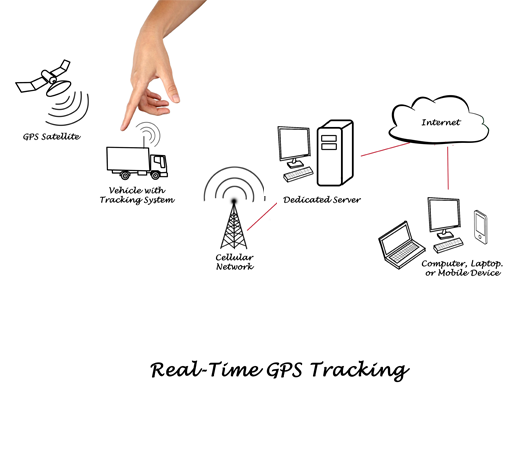Geolocation: Revolutionizing the Field Service Industry
Did you know that there are more than 8 million Uber users in the world? It is available in over 400 cities and almost 68 countries, and it is still growing.
Why do you think it is one of the most preferred taxi services?
Because it sends a car to your doorstep up to 2 times faster than a regular taxi service.
Similarly, Bizzy is another popular application that shows you where your friends have had dinner lately and also their recommendations.
What is common among such popular apps?
The Geolocation feature. Yes! It is the next big thing in a lot of industries, influencing not just consumer habits, but also the enterprise, more dramatically – in the field service industry.
It started off with cloud computing allowing employees of an enterprise to work mobile, from wherever they want, while still staying connected to office. Now, with geolocation, the transformation in the field service industry is more real and significant.
Considering how field service has always been an industry run on clipboards, spreadsheets and the like, cloud-based mobile solutions have indeed brought a substantial change in work efficiency. Earlier, technicians only had a little more than a phone, to connect with their main office. Now, with the advent of smartphones with built-in GPS capabilities, the field service industry can leverage the power of real-time geolocation services.
Here are some ways in which geolocation is revolutionizing the field service industry:
- Real-time tracking of location – This is one of the more obvious benefits of the geolocation feature. It allows the dispatchers to say exactly where their techs are, analyze their transit to see if they are stuck on the road, track the status of their task, plan their breaks etc. On the whole, it allows dispatchers to assign and reassign jobs according to the technician’s schedule.
- Performance management – As an extension of the above advantage, dispatchers get to know how much work and how well, their technicians are performing. They also get to see how many breaks they take, how long they break, whether they make early starts or end shifts early etc. This way they get to analyze and manage the performances of their field technicians effectively.
- Effective labour billing – Accurate tracking of worker timings leads to an automatic log of arrival and departure times, allowing for effective labour billing.
- Better communication – Geolocation put together with cloud services can benefit the customer too in huge ways. For example, a text or an alert can be automatically sent to the customer, when the technician is reaching the location or is exactly 15 minutes away from the location of service. Better scheduling leads to better insights for the dispatcher about creating more realistic timelines.
- Better collaboration – When on duty, if a service technician finds himself short of essential parts or tools, geolocation helps to track other technicians who may be nearby, from whom the shortage can be compensated with. Their inventories can be synced too so that it would be easy to identify who has the required tools and connect with them on the fly. This way, the job can be completed on the same day, rather than the customer having to reschedule the entire job. More like smart work!
- Efficient driving – Geolocation helps to analyze driving routes and give updates to technicians about traffic and weather issues.
Geolocation thus helps in incorporating more transparency and accountability into the business, leading to faster service delivery and in turn an improved bottom line.
What other benefits do you think can be added to this list? Let us know in the comments below.
Stay up to date on what's new

Recommended Posts

20 Sep 2016
How CxO’s can Leverage IoT to Transform Field Service Operations
Think of field service operations, and the odds are of the term being associated with inefficiency, delays, and other ills. Field service operations are not just reactive in nature, but……

30 Aug 2016
Photo-Blog: Top 5 Field Service Power Metrics
In Field Service industry, where the technicians are face to face with customers everyday, good operational efficiency, productive staff, and effective resource management are all interconnected and are important aspects of the business.……

18 Aug 2016
Is Your Business Ready for the Next Generation of Customer Service?
It has been proven, way back in 2011, that in field service, almost 89% of your customers are most likely to stop buying from you and go after one of……

16 Aug 2016
How is Data Captured On-site Best Utilized?
A few years back began the hype around going completely mobile in your field service, and improving productivity. Was it all worth the hype? Now, we have a number of……
Featured Blogs
Stay up to date on
what's new






















































